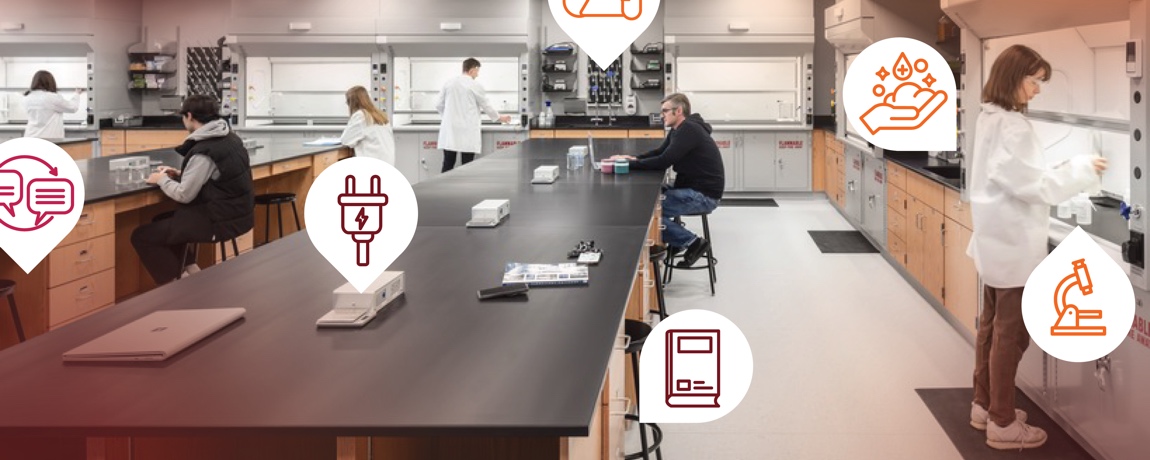
Services
- Workplace Research
- User Research
- Post-Occupancy Evaluation
- Occupancy and Observation
Client Objectives
- Refined Grundy Hall’s functionality to enhance its role as a dynamic, student-centered environment.
- Highlighted design successes, including cross-program interaction, improved daylight access, and community engagement.
- Identified opportunities to optimize space utilization and align with evolving educational needs.
- Enhanced RDG’s POE process with tools for capturing user feedback and analyzing design outcomes.
- Delivered actionable insights to support evidence-based, adaptable design strategies.
Hawkeye Community College
Enriching education through evidence-based design
Hawkeye Community College's Grundy Hall Health Science Center represents a bold step forward in health science education. Redesigned by RDG Planning & Design, the center unites previously dispersed class labs and simulation spaces into a centralized, multidisciplinary hub. With features like hospital-like patient rooms and collaborative simulation spaces, the design fosters hands-on, experiential learning, preparing students for health science careers in a cohesive, immersive environment.
To support Hawkeye’s vision and RDG’s design, PLASTARC conducted a Post-Occupancy Evaluation (POE) to assess the building's performance and its alignment with user needs. Through leadership interviews, user surveys, and on-site observations, the POE highlighted successes such as improved cross-program interaction, enhanced daylight access, and increased community engagement. The study also identified opportunities to optimize underused spaces and further align the facility with evolving educational goals.
PLASTARC’s findings equip RDG and Hawkeye with actionable insights to refine Grundy Hall’s functionality, elevating its role as a dynamic, student-centered environment and a premier space for innovation, collaboration, and health science education. The project also enriched RDG’s approach to post-occupancy and design evaluations, providing tools to better capture user feedback, analyze design outcomes, and apply these insights to future projects. By integrating Post-Occupancy Evaluation (POE) into their design process, RDG fosters continuous learning, enhances client relationships, and delivers evidence-based designs that adapt to user needs over time.

